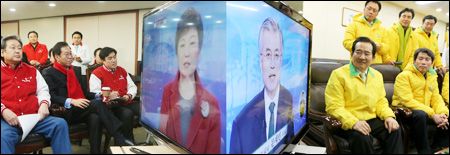Legal Harassment of Nepalkhabar Over Defamation Allegations Condemned
Nepal Court Orders Deletion of Report, Issues Arrest Warrant for Journalist

The background is the Kathmandu District Court.
By Purna Basnet
KATHMANDU: A district court in Kathmandu, Nepal, has ordered the deletion of news reports implicating the chairman of the Securities Board of Nepal (SEBON) in a corruption scandal and issued an arrest warrant for a veteran journalist involved in the reporting. The decision has sparked widespread criticism both within and outside Nepal, with many calling it a serious violation of press freedom.
On June 10, the Kathmandu District Court ordered online media outlets Nepalkhabar and Bizmandu to delete their coverage of alleged bribe demands by SEBON Chairman Santosh Narayan Shrestha. The court also banned any further reporting on the matter. Simultaneously, it issued an arrest warrant for journalist Dill Bhushan Pathak, who exposed collusion between political elites and corporate giants via YouTube, citing violations of the Electronic Transactions Act.
Nepalkhabar strongly rejected the court’s order, stating, “Our report was based on multiple verified and credible sources. Legal threats against the press shake the very foundation of democracy.”
Bizmandu also condemned the decision, calling it a clear violation of both the constitution and international standards of press freedom.
The International Federation of Journalists (IFJ) issued a statement denouncing the arrest warrant, asserting, “Punishing journalists for exposing corruption undermines Nepal’s democratic values.” Domestic organizations including the Federation of Nepali Journalists (FNJ) and the Nepal Bar Association also declared the judiciary’s actions unconstitutional.
Rajendra Dahal, former Chairperson of Nepal’s Press Council, asked, “If the reports are proven true, who will hold the court accountable for suppressing the truth?”
The Press Council of Nepal warned that recent measures—including demands to delete articles, police summonses, and social media surveillance of journalists—pose a severe threat to press independence. Media outlets have signaled plans for a collective response, arguing, “It is not the judiciary but the media watchdog bodies that should evaluate journalistic appropriateness.”
The Kathmandu District Court has scheduled a follow-up hearing for June 19. Meanwhile, local media voices express growing concern over the chilling effect on investigative journalism and rising self-censorship.
Sang-ki Lee, Founding President of the Asia Journalists Association, Publisher of AsiaN and former President of the Journalists Association of Korea, commented:
“Journalists are not police or prosecutors. They do not have investigative powers and thus cannot guarantee 100% factual reporting. Still, the media makes every effort to uncover and verify the substantive truth.”
“I trust the Nepalese judiciary will act according to the law and conscience, free from external pressure. It must be remembered that press freedom and the public’s right to know must take precedence above all else.”




